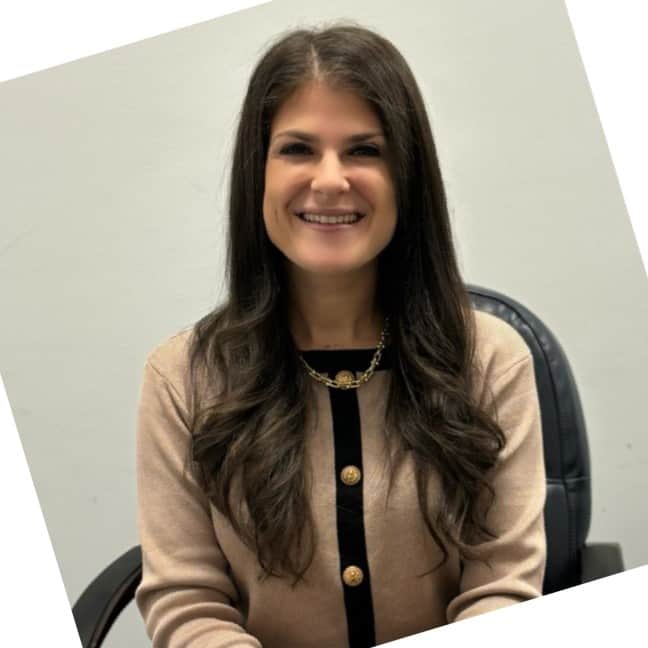What are Inhalants?
Inhalants are a diverse group of substances that produce chemical vapors, which can be inhaled to induce psychoactive or mind-altering effects. These volatile substances include household and industrial products such as glue, hair spray, cleaning fluids, paint thinners, spray paints, lighter fluid, nail polish remover, gasoline, aerosol sprays, nitrous oxide, and amyl nitrite.
Inhalants are often readily accessible and inexpensive, making them a common choice for abuse, particularly among young adults. This volatile substance abuse can produce a quick, intense high, but it also poses significant health consequences, including severe brain damage as well as damage to the heart, lungs, liver, and kidneys, as well as the potential for sudden death.
Signs of Inhalant Abuse
Recognizing the signs of inhalant abuse is crucial for early intervention and effective inhalant abuse treatment. Here are some signs that indicate a person is using commonly abused inhalants:
Physical Symptoms
- Chemical Smells: A lingering odor of chemicals on the breath or clothing.
- Stains: Paint or other stains on the face, hands, or clothes.
- Nosebleeds: Frequent, unexplained nosebleeds.
- Red or Runny Eyes and Nose: Irritation caused by inhalant fumes.
- Sores or Rashes: Around the mouth or nose due to frequent chemical exposure.
Behavioral Changes
- Unusual Behavior: Acting unusually excited, confused, or agitated.
- Social Withdrawal: Isolating from friends and family members.
- Secretive Actions: Hiding containers or using substances in private.
- Neglecting Responsibilities: Failing to meet obligations at school, work, or home.
Cognitive and Emotional Symptoms
- Confusion: Difficulty thinking clearly or making decisions.
- Memory Problems: Short-term memory loss or forgetting recent events.
- Mood Swings: Sudden and unexplained changes in mood.
- Psychotic Symptoms: Inhalant use can lead to inhalant-induced psychotic disorder, characterized by hallucinations, delusions, and other severe psychotic symptoms.
- Anxiety and Depression: Increased levels of anxiety, irritability, or depression.
Health Issues
- Headaches: Frequent or severe headaches.
- Nausea and Vomiting: Feeling sick or vomiting without a clear cause.
- Loss of Appetite: Decreased interest in food or unexplained weight loss.
- Lack of Coordination: Difficulty with balance and coordination.
By identifying these signs, concerned individuals can take appropriate steps to seek treatment and support for those struggling with drug abuse.
We’ve Helped Thousands of Individuals Overcome Drug and Alcohol Addiction
Inhalant Overdose
Inhalant overdose occurs when an individual inhales a toxic amount of substances found in common household and industrial chemicals, leading to severe and potentially life-threatening symptoms. These substances can include solvents, aerosols, gases, and nitrites, which, when abused, can quickly overwhelm the body’s systems. Symptoms of an inhalant overdose can range from mild to severe and include dizziness, confusion, slurred speech, nausea, vomiting, seizures, and loss of consciousness.
According to the Substance Abuse and Mental Health Services Administration, overdose can even lead to a coma or death in extreme cases. According to the National Inhalant Prevention Coalition, there are approximately 120 to 125 inhalant deaths per year.
The primary risk of overdose is “sudden sniffing death syndrome,” a condition where the heart stops abruptly due to the irregular rhythms caused by the chemicals. Additionally, the toxic effects of inhalants can depress the central nervous system, leading to respiratory failure and cardiac arrest.
Long-Term Effects of Inhalant Abuse
Understanding the long-term effects of inhalants is essential for recognizing the serious health risks and negative consequences associated with this dangerous form of drug use.
Neurological Damage
- Chronic inhalant intoxication and abuse can cause significant damage to the brain, leading to cognitive impairments, memory loss, and difficulties with learning and concentration.
Respiratory Issues
- Repeated inhalation of toxic substances can result in chronic respiratory problems, including lung damage, breathing difficulties, and an increased risk of respiratory infections.
Cardiovascular Problems
- Inhalant abuse can lead to irregular heart rhythms, high blood pressure, and an increased risk of heart attacks and other cardiovascular issues.
Liver and Kidney Damage
- Many inhalants are toxic to the liver and kidneys, potentially causing long-term damage and impairing their ability to function properly.
Bone Marrow Suppression
- Inhalant abuse can suppress bone marrow function, leading to anemia and other blood-related disorders.
Muscle Weakness and Loss of Coordination
- Long-term inhalant dependence can cause weakness and a loss of coordination.
Psychological Effects
- Chronic inhalant users may experience a range of psychological issues, including depression, anxiety, and a higher risk of developing other substance use disorders.
Social and Behavioral Consequences
- Inhalant use disorder can lead to social isolation, difficulties in maintaining friend and family relationships, and problems at work or school due to the behavioral changes associated with chronic use.
Increased Risk of Severe Health Complications
- Long-term inhalant abuse can result in severe health complications, including irreversible organ damage, coma, and death. It can also lead to fetal solvent syndrome for women who abuse inhalants while pregnant.
Inhalant Addiction Treatment at Right Path Recovery
Inhalant use disorder is a critical public health issue, with 0.8% (or about 2.2 million people) aged 12 or older in 2021 reporting the use of inhalants in the past 12 months. At our San Diego drug rehab, we are dedicated to providing comprehensive and compassionate care to individuals struggling with inhalant abuse. Our holistic approach includes various inhalant addiction treatment options to support our clients through every stage of their recovery journey, including:
Detox for those who Abuse Inhalants
Our medically supervised detox program ensures a safe and comfortable inhalant withdrawal process for individuals struggling with inhalant addiction. The detox phase is critical, as it allows the body to rid itself of harmful substances while managing the acute withdrawal symptoms. Experienced medical professionals provide constant care, closely monitoring vital signs and administering medications as needed to alleviate discomfort and prevent complications.
The goal is to stabilize the individual while they experience withdrawal symptoms, both physically and mentally, preparing them for the next steps in their recovery journey.
Residential Treatment for Inhalant Use Disorder
Our residential treatment program offers a structured and supportive environment where individuals can fully immerse themselves in the recovery process. Clients live at the inhalant rehab in a safe and nurturing setting, away from the triggers and stressors of their daily lives. The program includes a comprehensive schedule of individual therapy, family therapy sessions, and group therapy sessions, where clients explore the underlying causes of their addiction and develop coping strategies.
Educational workshops provide valuable information on substance abuse, health, and wellness, while recreational activities promote physical fitness and emotional well-being. This holistic approach ensures that all aspects of a client’s health are addressed, fostering personal growth and long-term recovery.
Dual Diagnosis for Substance Abuse and Mental Health Issues
We recognize that many individuals who abuse inhalants also struggle with co-occurring mental disorders, such as depression, anxiety, or PTSD. Our dual diagnosis program is designed to treat inhalant abuse and also address mental problems simultaneously, providing integrated care for a more effective and lasting recovery.
Our team of psychiatrists, psychologists, and addiction specialists work together to create individualized treatment plans that include therapy and medication management. By treating the whole person, we help clients achieve mental stability and sobriety, reducing the risk of relapse and improving overall quality of life.
Partial Hospitalization Programs for Inhalant Use Disorders
For those who require intensive treatment for addiction to inhalants but also need to maintain some level of independence, our partial hospitalization program (PHP) offers a balanced approach. Clients attend the program during the day, receiving intensive therapeutic services such as individual and group therapy, medication management, and skill-building workshops.
In the evenings, they return to their homes or sober living environments, allowing them to apply what they’ve learned in a real-world setting. This structure provides a high level of support while fostering independence and self-reliance, making it an ideal option for those transitioning from a residential treatment center or for those with significant responsibilities at home.
Aftercare for Inhalant Use Disorder
Recovery is an ongoing process, and our aftercare program provides continuous support to help clients maintain their sobriety and prevent relapse on inhalants or other substances. After completing the initial phases of treatment, clients have access to ongoing counseling, support groups, and other resources designed to sustain their recovery.
Our aftercare services include regular check-ins with therapists, relapse prevention planning, and connections to community resources such as employment assistance and housing support.
Recovery Starts at Our Drug and Alcohol Rehab by Requesting a Call
"*" indicates required fields
Contact Right Path Recovery for Help With Inhalant Addiction Treatment
If you or a loved one is abusing inhalants, don’t wait to seek help. Right Path Recovery offers comprehensive and compassionate inhalant addiction treatment programs for anyone who is dealing with substance use issues. We are here to guide you through every step of the recovery process, from detox to aftercare. Contact us today to learn more about our programs and how we can help you achieve a healthier, substance-free life. Fill out our online form or call us at (888) 291-7388.

Insurance Can Cover up to 100% of The Costs of Addiction Treatment and Mental Health Care
Did you know that insurance can cover up to 100% of the costs of addiction treatment and mental health care? Our addiction treatment center accepts most insurance plans. For a free insurance benefits check complete our confidential insurance verification form by clicking the link below.













